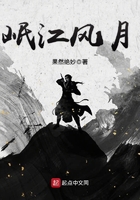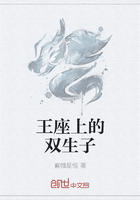These opening years of the sixth century of the Christian era were evil ones for the Empire. Belisarius's mother may be pardoned for her superstitious belief that the Devil was then at the height of his power. The reigning Emperor was old Anastasius, known as 'Anastasius Odd-Eyes' because one of his eyes was brown and the other blue (a peculiarity occasionally noted in domestic cats but never before, to my knowledge, in human beings); or as 'Anastasius the Usher' because he had once been an officer of the Gentlemen Ushers at the Court of his predecessor. He was an energetic and able ruler, despite his age, and no blame could be attached to him personally for most of the misfortunes of his reign: such as earthquakes, which greatly damaged some of the richest cities in his dominions, and the first appearance in the Bosphorus of Porphyry the whale, and the plague that spread from Asia, and a wide failure of crops, and an embitterment of the rivalry between Blues and Greens which led to mutiny and sedition. All these things occurred in or about the year of Belisarius's birth, together with vexatious wars with the Saracens in the country inland from Palestine and with savage Bulgarian Huns raiding across the Danube. Orthodox Christians ascribed all these misfortunes to a religious portent, namely the simultaneous appearance of two rival Popes; holding that it was blasphemy for two Vicars of Christ to exist simultaneously. The election of one Pope, at Constantinople, took place on the same day exactly as that of the other at Rome, the slowness of communication between the two capital cities causing the inadvertent confusion. But, once entrusted with the Keys of Heaven, neither of the rivals wished to yield his bunch to the other: the Roman Pope standing for rigid Orthodoxy in the (to me) highly fanciful dispute as to the single or double nature of the Son, while the other, Anastasius's nominee, stood for graceful compromise. Each anathematized the other as Anti-Pope, and we Hippodrome heathen were much amused at the spectacle and exacerbated the conflict by taking sides, Greens for one Pope, Blues for the other.
As if all this trouble were not sufficient, Anastasius became involved in a war with Kobad, King of the Persians, who utterly destroyed one of our armies and ravaged Roman Mesopotamia in a dreadful manner. Anastasius was forced to buy peace at the price of 800,000 gold pieces, and at a time when gold was scarcer than it ever had been, owing to the exhaustion of the principal European and Asiatic mines. In the year that Belisarius went to school at Adrianople, the Bulgarian Huns were ravaging Eastern Thrace again, and actually pasturing their horses in the kitchen-gardens and parks of suburban Constantinople. Anastasius set to work and built a great defensive wall at thirty-two miles' distance from the City, straight across the isthmus. This has been a comfort to us ever since, though it has been allowed to fall into disrepair and is not difficult to turn at either end.
As for the religious disputes: Anastasius, though inclined to the theory of the single nature, had, as I have explained, found it politic to nominate a Pope who favoured a compromise between this and the Orthodox, or double-nature, view. The Blues were Orthodox for political reasons; the Greens were either for compromise with Monophysitism or for plain Monophysitism. One day such rioting broke out in the Hippodrome over these religious differences that the old Emperor had to stand as a suppliant by the race-post (as Theodora and her family had done some nine years previously), and offer to resign his throne. The Blues pelted him with stones, but the Greens stood by him, since to them, as the stronger faction, he had allotted the best seats in the Hippodrome. In gratitude, he gave the Monophysite cause every possible support. But not long afterwards the Blues massacred a party of arrogant Monophysite monks; and because Anastasius did not venture to avenge their deaths, the power of the Blues became dominant in the City and Senate. But Vitalian, a Green of patrician rank, raised an army of 40,000 Thracian Monophysites and led them against the Blues, laying siege to the City. In fear of his life Anastasius then announced that he would assemble a General Church Council to resolve the whole religious difficulty; at which Vitalian disbanded his army before any fighting had taken place. But Anastasius did not keep his promise.
Such matters concern my story more closely than appears at first sight, because this queer fellow Justinian played a leading part in the negotiations between the Emperor, the Blues, and Vitalian on behalf of the Greens. Justinian represented the Blue faction, and assured Vitalian that matters could be arranged honourably to the satisfaction of both Colours and both Dogmas and of the Emperor himself. He even took the Eucharist at Vitalian's side as an additional proof of the Blue faction's good intentions towards him, and swore an oath of brotherhood on the Bread and Wine. Justinian was offered patrician rank for his services, but did not wish to accept this honour until he had first married our Theodora, with whom he was still infatuated. His aunt, Justin's wife, however, a virtuous old country woman who could talk no Greek, or very little, opposed the marriage-horrified that her nephew should consort with a woman who had once been a prostitute. Justinian was thus in a predicament: once he had accepted patrician rank he could not marry Theodora, and yet to refuse the honour would seem disloyal; and he was afraid of his aunt. He consulted with Theodora, who smiled and said: 'Accept the rank, for I cannot stand in the way of your advancement.' Theodora also went to the aunt, to tell her the same thing: which so pleased the old dame that she withdrew her opposition to Justinian's friendship with Theodora, if only she would leave her quarters at the club-house-as a decently repentant Mary Magdalene should already have done. So Theodora left us for a fine mansion, well-staffed and furnished, that Justinian gave her, and drove about in a carriage drawn by a pair of white mules. Justinian himself used a chariot with silver wheels and frame, and a team of four black horses harnessed abreast.
It was not long after this time that Belisarius came to Constantinople to study at the cadet-school, but my mistress Antonina saw nothing of him. She and the other ladies had given up the club-house, which had proved very profitable. Chrysomallo had married a rich wine-merchant, and Indaro had gone to live with Theodora, as her companion. My mistress thought that she might as well marry too. She found a solid, middle-aged Syrian merchant whom she could rely upon to treat her indulgently, not to live too long, and to leave her comfortably off when he died. She met him by accident: he was on a business visit to Constantinople and had taken a furnished house near the docks, of the sort that the owner lets, wife and all complete, while he lives uproariously by himself at a wine-shop. In this case the rented wife had died suddenly and the merchant was left without either a bedfellow or a house-keeper. My mistress consented to manage for him temporarily; and pleased him so well that they were legally married within a few days. He is not of great importance to this story, because (to be frank) he was not even the father of the two children of my mistress who survived-her son Photius and her daughter Martha-and of only one of the two who died. But he did just what was expected of him in life and death, and it seems that my mistress satisfied him as the best of wives, since he described her so in his will.
Their home was at Antioch, where he was Treasurer of the Blues at the local Hippodrome, and president of the silk-merchants' guild. He proved to be a much richer man than we had suspected. Peace to his memory. It was to please him that my mistress was baptized a Christian, along with three other women. That was a memorable ceremony in the hearty Syrian manner, with a young priest and a young deacon officiating. The women were immersed naked; but for decency's sake no man beside the priests was permitted to be present. I was not excluded, being a eunuch. Well, the proceedings at that baptistry included many jokes, drinks, kisses, and a little Christian ceremony. All seven of us ended in the water.
In the second year of our life at Antioch, which is a city of which I was extremely fond (especially when one can escape the heat in summer, as we did, by retiring to a country estate in the Lebanon among flowers and cedars), we heard news of the death of the old Emperor Anastasius. Soon afterwards came the surprising report that his successor was not one of his three worthless nephews, Green factional rubbish: he was Justin, the veteran commander of the Imperial Guards. Justin had been given a great deal of money by Anastasius's Court Chamberlain with which to bribe the Guards to support his own candidate for the throne. Justin gave the Guards this money honestly enough, but he tricked the Chamberlain: he himself put on the purple robes panelled with cloth of gold, and the purple stockings, and the scarlet jewelled slippers, and the white silk tunic, and the crimson scarf, and the pearl diadem with the four great pearls dangling behind. The Guards cheered him enthusiastically. Justin's baptismal name had been Istok and he had no surname, but he had arranged to be adopted into the ancient and noble family of Anicians. His old wife, however, said that all this pomp was ridiculous for a woman like herself: she refused to wear her own Imperial finery, or to move into the Sacred Imperial suite, until Justin had given her a new name instead of her old one. So from Lupchin (which signifies 'sweetheart') she became Euphemia, and caused a great deal of merriment in the City by her country ways. It was a sight to watch her distributing Sunday alms to the poor in the Cathedral Church of St Sophia, with her elegant train of women and eunuchs behind her. Lupchin had an excellent sense of the purchasing power of money, but could not accustom herself to the notion that gold coins by the hundred thousand were now hers for the asking. So she would solemnly deal out single pieces of silver to the long line of approved beggars, and if one old woman perhaps, having received her coin, took her place again at the end of the line, Lupchin would not fail to recognize her and would box her ears soundly; as she still used to box Justinian's ears if he spoke out of turn or otherwise displeased her.
Justin was Orthodox and inclined to the Blues. He found it necessary to rid himself of one or two dangerous Greens; among these was Vitalian. Justinian had Vitalian murdered at a banquet at which both he and his Imperial uncle were present. He justified his breach of the oath sworn on the Eucharist by some theological quibble to the effect that an oath sworn to a heretic was not binding. Justinian proved invaluable as a minister to Justin, who could not read or write-having to sign all documents with the assistance of a golden stencil which forged the letters LEGI, meaning 'I have read and approved'. Justin adopted him as his son, awarding him the dignity of the Consulship and appointing him Commander of the Armies in the East; but he was not a soldier, and preferred to remain at Constantinople with Theodora. The Greens took up arms to avenge Vitalian's death, but Justinian was kept informed of their secrets by Cappadocian John and suppressed the rising ruthlessly; and you may be sure that Theodora encouraged him in this. Cappadocian John, though a Green, happened to be Orthodox in his views and made this an excuse for his treachery; for he saw which way the wind was now blowing Justinian rewarded him with large presents of money and an important position at Court. Theodora could afford to wait for her revenge on him.
Meanwhile the breach with the Pope had been healed, because Justin was more Orthodox than the Pope himself, as he used to boast rather childishly; and all Monophysite bishops and priests were removed from their appointments. A curious circumstance was that, although Theodora was so loyal a Blue, or rather so vengeful an enemy of the Greens, she was intellectually a Monophysite, just as Cappadocian John, though a Green, was intellectually Orthodox. She took the view, which seems a sensible one to me, that if anything so singular as a double nature had characterized the Son, someone at least of the Evangelists or Apostolic Fathers would have mentioned it, if not the Son Himself; but none had. Justinian's counterview was that a double nature was common enough; though in ordinary men it was, more usually, part human and part demonic. (This was true enough of himself.) Theodora replied to this: 'Demons are numerous, and as many as seven at a time can occupy a man's body, I admit. But God is eternally One, by a theological axiom, and therefore if Jesus was indeed God He was One also.'
Belisarius-who was Orthodox, though not fanatically so-graduated from the cadet-school with honour and proved an excellent officer of the Guards. His uniform was now the green tunic faced with red, golden collar, red shield bordered with blue and starred in black. He did not mix in faction politics or spend his time in idleness, so Justin noted him as due for quick promotion and encouraged him to work out a new system of cavalry training with the men under his command. He elaborated the plan that he had clearly hinted at, during that banquet at Adrianople, for arming heavy cavalry with bow as well as lance and thus making them proficient both as skirmishers and shock troops. Justin was a seasoned soldier, and Belisarius's views pleased him; he also admired the unanimity that he found between Belisarius and his brother-officers-Rufinus and Armenian John and Uliaris. When he became Emperor he permitted them to train a company of recruits in this new style and take them raiding across the Danube.
Belisarius, then, armed all his men with the lance, and a stiff bow that had a slow shooting-rate but could drive an arrow through any corselet. He also gave them each a small handy shield, strapped to the arm, which acted as a receptacle for half a dozen sharp darts. These darts were useful at close quarters. They were seized by the feathered end, held upright like a torch, and flung with a forward and downward motion; the heads were heavily weighted and the feathering kept them steady on the mark. As a final arm for use when even the lance failed they carried a heavy broadsword in a sheath on the left thigh. To control all these weapons, and the horse at the same time, needed many months of practice. A bow, for example, is a weapon that needs both hands; so Belisarius trained his men to manage their horses without the bridle, by pressure of the knee and heel. But he also introduced the novel device of steel stirrups, which were suspended by straps from the saddle as an aid in mounting and riding the very large horses that he favoured. Stirrups are now in general use throughout the army, though at first despised as womanish. Lastly, he supplied his men with wide, well-stuffed saddles, in front of which were strapped, when not in use, their woollen cloaks for cold or rainy weather. They wore sleeveless mailshirts of thigh length, and tall rawhide boots. When not in use, the bow was slung behind the back; the arrows were contained in a quiver next to the broadsword; the lance was carried in a leather bucket on the right side.
The recruit was trained to do everything methodically, so that each action became habitual: for example, the action of stringing the bow was undertaken first with the horse walking, then at a trot, then at a gallop. The right hand reaches behind for the bow, pulls it forward, rests the strung end on the right foot, and bends the bow by pressing it downwards. The left hand, which has meanwhile snatched an arrow from the quiver, unties the loop of the bowstring and slips it up over the catch; then down comes the left hand to the centre of the bow, transferring the arrow to the right hand-and in a moment the bow is in action. Belisarius learned this method from the Huns. From the Goths he learned the proper management of the lance and shield and taught his men to tilt against one another with light, untipped spears. The final exercise for the trained cuirassier was to gallop across a field from the end of which the Hanged Man approached. This was a stuffed figure suspended from a gallows on a low, wheeled trolley; the trolley came rolling forward down a gentle slope. The rider must string his bow as he rode, aim three arrows at the swaying figure, and then be ready to follow with the lance, or with darts. Rank, pay, and rations were awarded according to proficiency in these and other exercises. Belisarius required from his officers exceptional faculties: skilful use of country in manoeuvre, promptness and accuracy in reporting to headquarters, a quick appreciation of a tactical difficulty or advantage, but, above everything, the power to control their men both when in a body and when dispersed. This power comes more naturally to some men than to others; and none have it who failed to earn the respect of their men by bodily prowess. Therefore Belisarius insisted that every officer must be at least as proficient with bow, lance, darts, sword, and as good a horseman as the best men under his command.
Justin had asked Belisarius: 'What sort of recruits do you want? Have you a preference for any particular class or tribe or race?'
Belisarius's answer: 'Give me men who can drink foul water and eat carrion. Let them be a mixed force of mountaineers, sailors, men from the wide plains. Give me no estate-levies, except with the privilege of choice, and no factionists, and no men who have served as soldiers in any other corps.'
Justin approved the answer. Disease carried off more men on some campaigns than wounds, and its victims were for the most part those who were unused to bad food and water. Mountaineers were in general bold, hardy, independent men with well-developed sight and hearing; they were invaluable as scouts and guides in broken country. Men from the wide plains understood the management of horses and the art of open warfare. Sailors were ingenious with their hands and knew how to make themselves at home in strange places and how to establish understanding with foreigners. Each of these classes of men could learn from one another; the more diverse the ingredients of the mixture, the better would be the discipline in any squadron, and the better the terms on which one squadron met with another. For close racial and religious ties uniting men under a single standard often make for mutiny, discontent, and quarrelling with other corps. To enlist in the army should be like becoming the citizen of an entirely new world, not like moving from the centre to the suburbs of one's native town. These were Justin's views as well as those of Belisarius. Belisarius had wanted no estate-levies-that is to say no serfs contributed by landowners to the army in lieu of a tax-because the land-owners would in general send their weakest and most useless men; but he had added 'except with the privilege of choice', knowing that in these levies a man was sometimes included merely because he was too active and independent-minded to please his landowner-and, properly handled, might turn into a fine soldier. Finally, he had wanted no factionists, because they were a disturbing element wherever they went, and no men with previous military service in other corps, because these always considered that they knew better than the officers and sergeants of their present squadron or company, and taught the recruits traditional tricks for evading duty, and for stealing, and for bettering themselves at other people's expense.
Justin allowed Belisarius his pick of the recruits who came forward that year from Thrace, Illyria, Asia Minor; he chose according to the specifications he had made.
With a well-trained squadron Belisarius raided across the Upper Danube in the summer of the year of our Lord 520. He engaged with the Gepids a troublesome Germanic race that had been settled in this region for about a hundred years. The Gepids fought from horseback with long battle-axes and talked in loud voices and greased their yellow hair with rancid butter. They were organized, like most German tribes, into gaus, communities of 5,000 or more souls, each under a nobleman, and providing a thousand or so armed warriors for the national army. The gau thousands were subdivided into 'hundreds', troops of mounted freemen who had taken an oath of personal loyalty to a lesser nobleman and who were members of a single clan, or group of families among which there was a regular exchange of women in marriage.
Belisarius's commission was to engage small forces of the Gepids, to take prisoners, to lose no men himself, to teach this nation a new respect for the Imperial name. All these tasks he accomplished. Even the noblest Gepids wore little armour, relying on leather jerkins and helmets and hide-covered wicker shields; and only their infantry, who were serfs or slaves, used the bow. Belisarius's tactics were to draw the Gepid cavalry away from their infantry, and to keep them just within bowshot; not letting them come to closer quarters with their battle-axes and short javelins until they were demoralized by their losses; first dismounting as many of them as possible by the shooting of their horses. Then he would charge, yet would not press the pursuit, merely capturing the dismounted men and as many others as held their ground. In this summer's campaign, of which I can give no geographical details, because there are no settled towns or other well-known features in that district to indicate its extent, he raided over a distance of 400 miles. The food his men carried with them was barley-meal and dried goat's flesh, always a ration for ten days. He kept a supply-boat on the river, with stores of arrows and a repair-shop in it: this was his base. By the end of the campaigning season three of his men had been wounded, and one drowned in a marsh; but he had captured not less than forty Gepids, all of whom, rather than be sold as slaves for menial work, applied for permission to enlist under his personal command as cavalrymen. They were the first barbarian recruits to the Household Regiment of Belisarius, for so Justin gratefully renamed the force, allowing the men to swear personal allegiance to their commander.
These Gepids have a shortage of metal, iron as well as gold, and their jewels are of trifling value.
Many of the officers who later distinguished themselves under his leadership in his four principal wars were trained in this campaign; or in the punitive expedition that he made in the following summer against the Bulgarian Huns of the Lower Danube, who had lately been active again on our side of the river. He had 600 heavy cavalry with him on this occasion, not 200. With the Bulgarians, who are horse-archers, the problem was how to come to close quarters with them, not how to hold them off. His method was to use live bait, a small body of men on fast horses, and draw the greedy Bulgarians into an unfavourable position, from which their retreat could be cut off. The Bulgarians, like the Gepids, protected their communities, when halted during the march, by barricades of wagons. Belisarius would ride to the windward of these and set them alight by means of fire-arrows. He caused the Bulgarians heavy losses and took numerous prisoners, but the plunder that the captured camps yielded was small.
For his feats Belisarius was promoted in title from 'Distinguished Patrician' to 'Illustrious Patrician'. Justinian was now Commander of the Imperial Guards under his adoptive father the Emperor Justin. He was, however, no soldier, and in practice army matters were still controlled by Justin. On the other hand, Justin had no understanding of statecraft or civil business, and let the officers of State do more or less what they pleased, under the supervision of Justinian.
Belisarius was now employed as general supervisor of military training, and spent the next four years going from one garrison town to the other throughout the Eastern half of the Empire, writing detailed reports on the condition of the troops he inspected and on the capacity of their officers, and making recommendations for improvements in training and equipment. He gained many friends among steady old officers whose work he praised, and active young officers whom he recommended for promotion; but more enemies. He always refused to turn a blind eye to incompetence or to deficiencies in equipment, and was known to be unbribable.
He remained in high favour at Court, yet when he was pressed to marry this high-born woman or that, he always excused himself as at present too much of a traveller. When he could settle down he would marry, he said. But he had no love-affairs with women, married or unmarried, and abstained from visits to the grand brothel which Constantine had built and which was the general meeting-place of all the wit and fashion of Constantinople. His enemies hinted that he was no lover of women merely because he preferred his own sex; but that was a foolish lie. If he did not marry, that was, in my naturally prejudiced view, because the memory of my mistress Antonina had remained with him; and he abstained from the brothel because to attend it was against the Christian law which he had sworn to observe. Besides, his work was enough to occupy his mind, and should he want amusement he would go hunting with his staff. If there was a shortage of deer or hare or other game, this would not trouble him much: he would shoot as readily at hawk in the sky or snake in the hedge as at nobler game, and not less accurately. He encouraged his officers at the same practice; for hunting, he said, was a sort of drill. Boar-hunting with the lance he especially recommended.
He came to Antioch twice in the course of his duties, but on the first occasion my mistress and her husband happened to be staying at their villa in the Lebanon; and on the second she did not meet him either, though she longed to do so. Her husband invited him to a dinner at the house, but he refused, pleading his official duties. However, he wrote a letter in his own hand as a particular compliment to my mistress's husband. My naturally prejudiced view was that he would have felt embarrassed at meeting my mistress again as the wife of another man.
This may seem an extravagant story, but I later met its parallel in Italy: a young patrician had fallen in love with a married woman when he was only thirteen. Not only did he abstain from love of any other woman, but he went out into the wilderness and lived in a cave, and later formed a society of hermit monks whom they now call Benedictines after this desperate Benedict. They were a decent fraternity, whose employments were three only-namely, worship of God, reading, manual labour; they abstained from butcher's meat, politics, and vice. But they came to hold with Benedict that man and woman should not merely be strangers to each other but natural, irreconcilable foes; which, to me, is nonsensical. I visited their high-walled hermitage on Mount Cassino once, above the Latin Way between Rome and Naples, and found everything under the strictest and exactest discipline. I reported what I had seen to my mistress, who by the rules of the monastery was not permitted to enter, and said to her of Benedict: 'A good soldier is lost in him.' Belisarius, who was present, answered me in the Christian sense: 'No, Eugenius, a good soldier found.'
This Benedict was nearly defeated once, for the woman with whom he was in love took pity on him at last, and engaged a party of theatre-women to come with her one evening to the monastery, one woman for each monk. They knocked at the great door; and when the porter-a gigantic Goth-opened to them he was assaulted by fondling arms and smothered in scented kisses, and led away prisoner. The attack was carried out most vigorously, and all the monks succumbed except two or three, who locked themselves in their cells and threw the keys out of the window to be rid of the temptation: as Ulysses in the story immobilized himself against the temptations of the Sirens by ordering his sailors to lash him hand and foot to the mast. Only Benedict stood his ground. He took the leader of the enemy by the hand and spoke to her with loving frankness, and made her bitterly ashamed of her action. If this story be true, Benedict was as staunch a character as Belisarius. Or perhaps the woman had lost her looks in the meantime; for she was certainly a good deal older than he, and patrician women at Rome are gluttonous and lazy and soon grow as fat as the captive carp in their fish-pools.
At all events, Belisarius lived an upright and regular life, and in these years only failed on one expedition: that was against Porphyry, the famous whale, who now for twenty-five years had harassed the shipping of the Bosphorus and Black Sea, and could not by any means be killed or trapped. This Porphyry was the only whale that was ever known to enter the Mediterranean Sea. Much larger whales, called sperm whales, are frequently met in the Atlantic, and one of great size was once stranded at Cadiz. Larger still are met with in the Indian Ocean by Red Sea traders, who sail to Ceylon every year with the monsoon-wind-these are the whales that yield whalebone, and are often 400 feet in length. Porphyry was no more than one-eighth of that size; but unlike the Indian whales, who are shy creatures and avoid shipping, he carried on a destructive war with the Empire. Whales do not, as one might suppose, eat large fish and dolphins and seals and sharks, but only the smallest fry: they rush through the water with their mouths open and engulf millions at a time. Porphyry would cruise about in the Black Sea, feeding on the sea-bottom in the breeding grounds of fish, and sometimes would disappear for months on end. But always he would return and station himself in the narrows of the Bosphorus, or the Hellespont, and let swarms of fish be swept into his mouth by the current. It happened at Porphyry's first appearance that a bold fisherman, annoyed at having his nets broken, managed as he shot by in a small boat to throw a heavy fish-spear into Porphyry's flank. This was a formal declaration of war, and Porphyry, whose intentions had hitherto been peaceable enough, charging after the boat, broke it with a swing of his tail. Then it was realized that Porphyry was not a young whale of the usual unwarlike sort but a full-grown killer-whale, as they are called, such as have been observed by sailors on the Indian voyage in the act of making war on the great whales and flogging them to pieces with repeated blows.
Porphyry would lurk in the depths of the sea and suddenly appear, spouting water from a hole in his head, and dash at any boat or small ship he saw, and strike at it with his tail, and destroy it. He also sank two ships of considerable tonnage, at different times, by rising suddenly from beneath them and starting their timbers with the impact of his head against them. This was perhaps an accident, however.
All sorts of explanations were given for Porphyry's ravages. The Orthodox held that he was sent as a punishment for the heretical sin of Monophysitism, but the Monophysites said that this could not be so, for Porphyry struck at Orthodox and Monophysites alike. (And by the time of which I speak the breach with Rome had been repaired.) Others said that he was looking for a Jonah-and many an unpopular sailor, Orthodox or Monophysite as the case might be, had been thrown out to him as a sacrifice. Bishops of both opinions had been sent to preach to him from the shore, and texts floated down the current to him, written on strips of paper, conjuring him in the name of the Trinity to return to the Ocean whence he came. But Porphyry was unlettered and unbaptized, and paid no attention.
Belisarius volunteered to hunt Porphyry. He stationed himself at the entrance of the Black Sea about the time that the whale was expected to return to its usual fishing grounds. He was in a ship of a size greater than Porphyry was accustomed to attack, and it was armed with a siege-catapult of the sort that throws not the usual short bolt with wooden feathers, but a heavy, long spear. Justinian provided, for the management of the catapult, a detachment of City militia of the Blue faction-the responsibility for the defence of the walls of Constantinople was divided between the Demarch of the Blues and the Demarch of the Greens-who were animated by a desire to earn glory for their Colour by the extinction of Porphyry. The ship's crew were also Blues. They painted the catapult spears with blue paint, and painted the cheeks of the vessel blue too, and the blades of the oars.
Reports arrived at last that Porphyry had been sighted farther along the north coast, moving slowly down towards the City, and that he was in a mischievous mood. Belisarius ordered a keen look-out to be kept; and tested the catapult, giving the militia-men a drill in its management to make them perfect. He instructed them to aim at a cask which he had thrown overboard until they could calculate to a nicety the propulsive force of the ropes when tightened with a crank. Presently the look-out sighted the spouting Porphyry at half a mile's distance. Porphyry came closer, swimming on the surface, and made straight for the vessel, as if he intended to ram it. He was an animal of intelligence and wit, and knew how terrible his reputation had become: at a sight of him ships used to put on all sail and flee before the wind, sometimes going fifty miles or more out of their course. But this ship held its ground.
Nearer and nearer came the beast, and now Belisarius gave the order to shoot. The spear hurtled through the air-and went clean through the cask at which the prudent militia-men, terrified of Porphyry's anger, preferred still to aim. Porphyry contented himself with a flourish of his tail-which snapped two dozen oar-blades-and then dived and disappeared. But before he went Belisarius had driven a heavy arrow into him, from a stiff steel bow of the sort used in siege-warfare against enemy who try to force city-gates under the cover of shields of extreme thickness. He aimed where he reckoned the brain would be; but the anatomy of the whale is peculiar, and the arrow sank out of sight in protective blubber.
That was the last that the hunters saw of Porphyry; after cruising about for a few days they returned. The crew had talked matters over among themselves, and agreed on a story that satisfied their pride. According to them, Belisarius had shot with his bow but missed, and they had then shot with the catapult. The spear had gone straight into Porphyry's open jaws, but Porphyry had bitten the shaft off and gone away bellowing, with the head of the spear deeply embedded in his throat. 'Soon he will die of his wounds,' they boasted, 'and you will recognize our spear-head by its colour.' The Greens refused to accept these claims, particularly as Belisarius had not supported them. All that he would say was: 'The militia-men fought their catapult energetically and showed themselves accurate marksmen. I have handed in an official report to his Serenity the Emperor. Doubtless he will publish it, in due course.' But, for the honour of the Blues, Justin withheld the report.
Porphyry continued to destroy nets and shipping for many years after this. The Greens, though convinced that the Blues had been cowards, were not anxious to make fools of themselves by volunteering to put an end to Porphyry.















